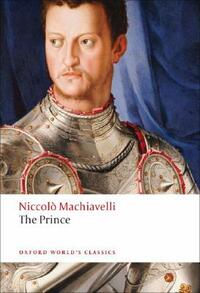Take a photo of a barcode or cover
medium-paced
informative
reflective
slow-paced
challenging
informative
reflective
slow-paced
Influenced me a great deaL AS A TEEN AND LED TO MY LOVE OF lEO bUSCALGLIA BOOKS./
challenging
informative
slow-paced
I think I would have enjoyed this more if I didn’t have to read it for class, while simultaneously writing my final.
When reading this I couldn't help but think most of the things he was saying were just common sense... but then again, maybe we only think of common sense the way we do because of writings like this.
Dude is so cool, I bet he never had to pay hookers to sleep with him.
Perspective: 4
Prose: 3
Content: I mean... I can only hear "do what's practical, not what's moral" like 5 times. I'll say he did show some amount of restraint (for a guy who really wanted to write something) but uh, he still kind of could've distilled it into something better.
Good book. The essential axioms on which he based this work are fascinating and well thought out. I don't think this is the work of a man who really had a purpose in mind outside of power. I think the essential question here is "how do I acquire and retain power" without consideration of what to do afterwards.
I imagine it's the work of its time. He speaks at length about tradition, and I think this work reflects that. This work is a treatise on controlling and gaining power over exactly what is, but no more. There isn't the foggiest thought on how to develop (as the Romans and others did) a reason to live.
Perhaps it's intended. Outside of morality, it's difficult to say this work is "evil". I'll say I find some of it dubious, but there are so many caveats that if he were ever wrong he'd only be "generally" wrong and never "specifically" wrong.
My greatest enjoyments were: his hierarchy and taxonomy of a nation/principality and his fascinating perspective. I'll ignore the former since I already mentioned it, but the latter is filled with an insight into amorality that I find fun. Like, he never promises good will come of any of his actions, so you really can't blame him! He says, act evil and you will retain your evil and it's like... dang. He not wrong.
There's the broader question at play here about whether or not morality applies to politics, but that was never brought into the work, so it really isn't important here. What I'm trying to say is: the fruit of the labors described in this book are something I (in my limited knowledge) think are accurate in his description.
The perspective I think Machiavelli does NOT consider are those high-minded, simple village idiots who, for one foolhardy reason or another, want to bring some kind of chivalrous or morality to their country, which I'd agree is not necessarily the job of the state and, in fact, I'd agree to his points on this matter as well. I'd be fascinated to hear his private thoughts on these, which doubtless he had. In my head, he'd say -- with more or less accuracy -- that, that isn't part of the game. It's not the job. The prince belongs to the state and morality to the church (which, as prince, he'd acknowledge publically but never take into practical consideration).
For the rest of the book, you gotta read the parts on maintaining order amongst the common people, gaining their favor, and how to balance their desires with the nobles. Honestly, I wouldn't put it up their with the Art of War, but it's pretty good and worth reading.
Okay, the actual negatives:
1. He is really bad at synthesizing a lot of stuff. I won't go into all of it, but his whole "fox and lion" thing is cringe. I think he's right that we need to be shrewd and respected/feared, but the whole imagery thing is a bit... forced and trite.
2. I just don't think he made a case for some of the murdering he recommends. I think he's right that murdering can be super effective when done right, but in the same way... There's no mention of the practicality of killing folks and how others might gather round to see. Vengeance and all builds resentment, and I think it would've made sense to talk at greater length about "and when you kill somebody, you gotta make it seem like they deserved it."
3. No mention of baser principles to humans. He sees folks as pawns in a chess game, but never mentions specific, universal pleasures and pains that guide folks. Perhaps this isn't a book on espionage, but I found this lacking.
4. Nearly redundant with my first point, but he mentions some key phrases/words, but fails to dive into them at any length.
5. Man... Idk about putting Fortune in here. Like, I get it, but really he should've just put that at the end or the beginning and not mention it so much. Like, it's cool and I get it, but Fortune is not a tangible substance; it's not practical or manipulable. His chapter on Fortune was 4/5 stars, but the whole fortune bit he kept throwing in may have only been to appeal to the sensibilities of its audience. I think Fortune is his God of the Gaps, politically at least.
Perspective: 4
Prose: 3
Content: I mean... I can only hear "do what's practical, not what's moral" like 5 times. I'll say he did show some amount of restraint (for a guy who really wanted to write something) but uh, he still kind of could've distilled it into something better.
Good book. The essential axioms on which he based this work are fascinating and well thought out. I don't think this is the work of a man who really had a purpose in mind outside of power. I think the essential question here is "how do I acquire and retain power" without consideration of what to do afterwards.
I imagine it's the work of its time. He speaks at length about tradition, and I think this work reflects that. This work is a treatise on controlling and gaining power over exactly what is, but no more. There isn't the foggiest thought on how to develop (as the Romans and others did) a reason to live.
Perhaps it's intended. Outside of morality, it's difficult to say this work is "evil". I'll say I find some of it dubious, but there are so many caveats that if he were ever wrong he'd only be "generally" wrong and never "specifically" wrong.
My greatest enjoyments were: his hierarchy and taxonomy of a nation/principality and his fascinating perspective. I'll ignore the former since I already mentioned it, but the latter is filled with an insight into amorality that I find fun. Like, he never promises good will come of any of his actions, so you really can't blame him! He says, act evil and you will retain your evil and it's like... dang. He not wrong.
There's the broader question at play here about whether or not morality applies to politics, but that was never brought into the work, so it really isn't important here. What I'm trying to say is: the fruit of the labors described in this book are something I (in my limited knowledge) think are accurate in his description.
The perspective I think Machiavelli does NOT consider are those high-minded, simple village idiots who, for one foolhardy reason or another, want to bring some kind of chivalrous or morality to their country, which I'd agree is not necessarily the job of the state and, in fact, I'd agree to his points on this matter as well. I'd be fascinated to hear his private thoughts on these, which doubtless he had. In my head, he'd say -- with more or less accuracy -- that, that isn't part of the game. It's not the job. The prince belongs to the state and morality to the church (which, as prince, he'd acknowledge publically but never take into practical consideration).
For the rest of the book, you gotta read the parts on maintaining order amongst the common people, gaining their favor, and how to balance their desires with the nobles. Honestly, I wouldn't put it up their with the Art of War, but it's pretty good and worth reading.
Okay, the actual negatives:
1. He is really bad at synthesizing a lot of stuff. I won't go into all of it, but his whole "fox and lion" thing is cringe. I think he's right that we need to be shrewd and respected/feared, but the whole imagery thing is a bit... forced and trite.
2. I just don't think he made a case for some of the murdering he recommends. I think he's right that murdering can be super effective when done right, but in the same way... There's no mention of the practicality of killing folks and how others might gather round to see. Vengeance and all builds resentment, and I think it would've made sense to talk at greater length about "and when you kill somebody, you gotta make it seem like they deserved it."
3. No mention of baser principles to humans. He sees folks as pawns in a chess game, but never mentions specific, universal pleasures and pains that guide folks. Perhaps this isn't a book on espionage, but I found this lacking.
4. Nearly redundant with my first point, but he mentions some key phrases/words, but fails to dive into them at any length.
5. Man... Idk about putting Fortune in here. Like, I get it, but really he should've just put that at the end or the beginning and not mention it so much. Like, it's cool and I get it, but Fortune is not a tangible substance; it's not practical or manipulable. His chapter on Fortune was 4/5 stars, but the whole fortune bit he kept throwing in may have only been to appeal to the sensibilities of its audience. I think Fortune is his God of the Gaps, politically at least.
It’s better to be impulsive than cautious; fortune is female and if you want to stay on top of her you have to slap and thrust. You’ll see she’s more likely to yield that way than to men who go about her coldly.
challenging
informative
reflective
fast-paced





